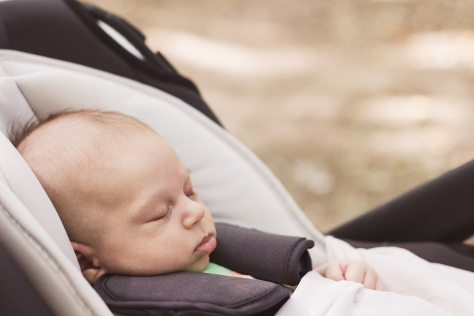Baby sleep concerns and responding to changing sleep patterns
Some changes to your baby’s sleep, and some easy ideas that may help

Every parent goes through stages of sleeplessness, it comes and goes with the territory. Babies need their sleep but for various reasons can struggle to sleep or wake and may be difficult to settle at times.
Here are some common sleep concerns that parents experience and some tips on how to help resolve them:
1. Your baby only sleeps when being held
A very common problem parents’ face, after all, what’s more natural than holding your baby tight and letting them fall to sleep. Yet it becomes a challenge when this is the only way your baby will sleep and the minute you lay them down they wake. Simply put; your baby associates sleep with being held and the smell of you. This does not apply in the early few weeks and babies need reassurance and comfort. As their cognitive function developments then they become aware of being held and cuddled by different people and what they are 'used to.'
What to try: Ask your partner or even a grandparent to cuddle them before bed, it will help break the association of it always being you and will also get them used to someone else putting them down to sleep just as they doze off to encourage them to settle themselves into a deeper sleep.
2. Your baby needs to be rocked to fall asleep
Similar to being held, when you hold your baby to settle them to sleep, you naturally rock and it is this motion that helps them fall asleep. You will also recognise this if your baby often sleeps in a rocking, bouncer chair.
What to try: Start by rocking your baby but as they start to fall asleep gently stop rocking to help ease them into being able to fall asleep without the motion.
3. Your baby falls asleep when feeding
This is such a common problem with babies, whether breast or bottle fed. Naturally parents get in the pattern of feeding baby at bedtime and baby naturally associates feeding with sleeping.
What to try: Feed a little earlier and try distancing the time between the last feed for your baby and actual sleep/bedtime to help break this association.
4. Your baby regularly sleeps in their car seat
Again this is motion related, as the car can naturally help babies to fall asleep. Whilst short naps are OK in car seats, the safer sleep charity, The Lullaby Trust advises parents to be mindful of how long your baby is sleeping in a car seat.
What to try: When you are driving it’s not easy to help your baby stay awake, but the older they get the more they will respond to you talking to them and interacting so try to keep talking and where possible have regular breaks from the drive where you can stop and get your baby out of the car seat for a change of scenery. With young babies try to time car journeys to coincide with their daytime naps.
5. Your baby falls to sleep easily at bedtime but wakes regularly in the night
There could be a number of reasons for this, needing a feed or a nappy change is common in young babies, but as they get older it could be linked to teething, or it could be related to sleep regression.
What to try: If your baby is getting older but wakes due to hunger, think about adjusting the time you feed them before bed. It may be that your baby is choosing to nap more than feed during the day so try and encourage your baby to stay awake and feed during the day to see if it helps. It's also a good idea to get into a regular bedtime routine and support your baby to self soothe when they wake.